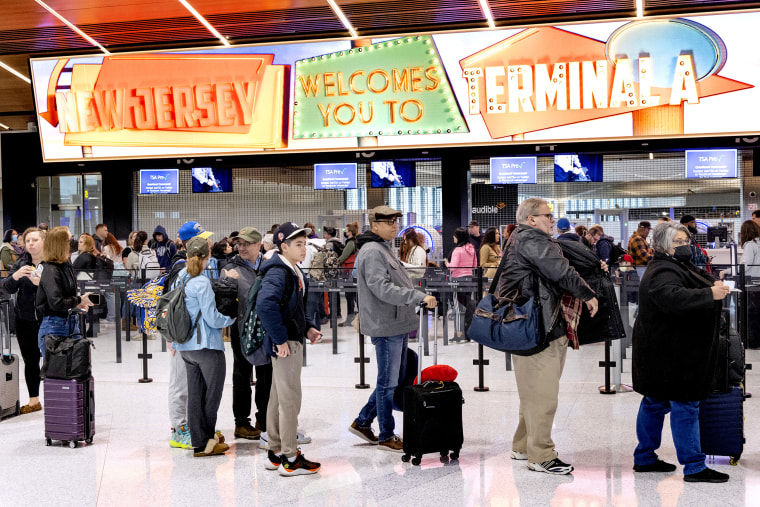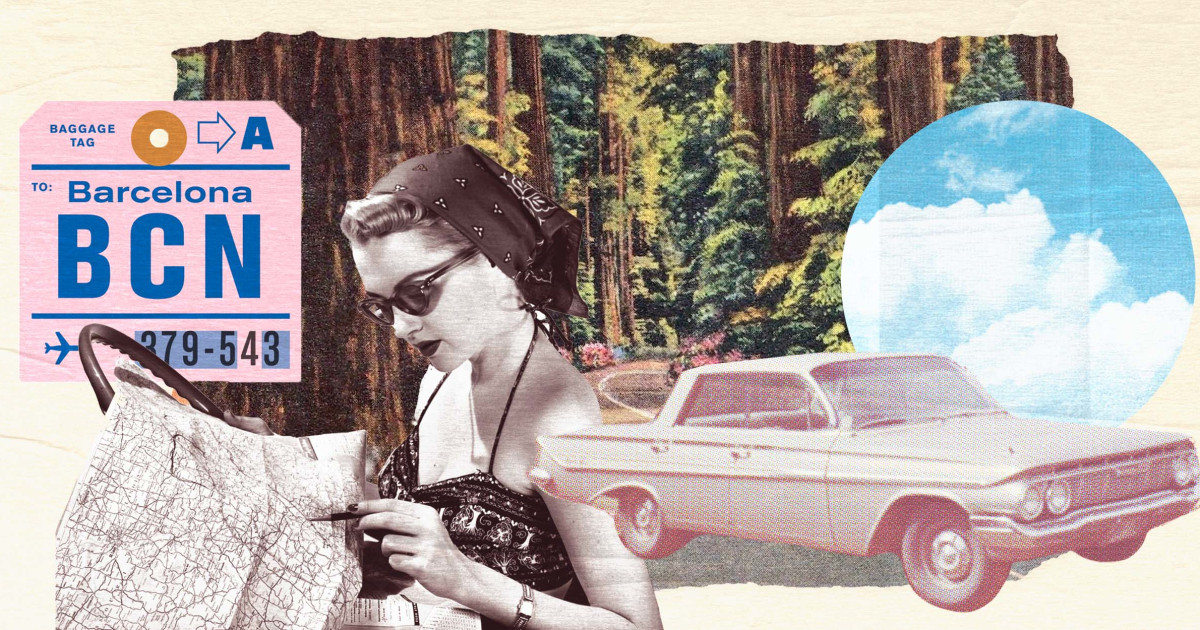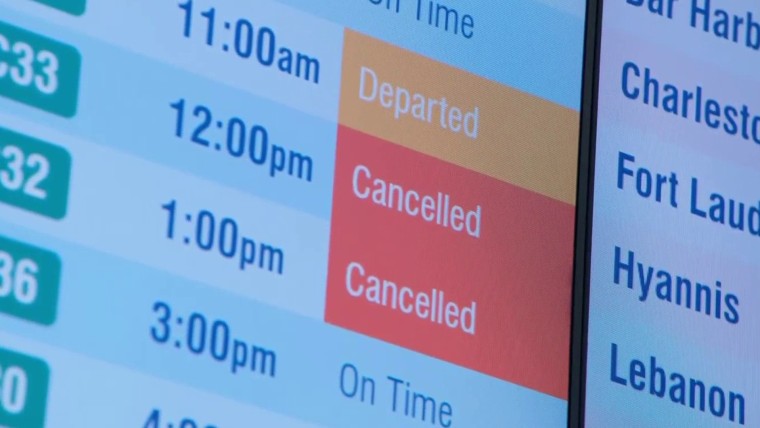If you sat out last summer’s overcrowded, overpriced, booked-solid travel season in hope of cheaper and easier getaways this year, you may be out of luck.
Sixty-three percent of U.S. adults plan to travel this summer, up from 61% this time last year, according to a recent survey by Bankrate, a consumer-finance data provider. Airlines are bracing for high demand, and aviation authorities are warning of another season of flight disruptions.
The expectations come as inflation eased to 4.9% in April after having peaked at 9.1% last June and as the Biden administration’s ending of the pandemic emergency officially concludes the era of Covid-related travel restrictions, which have largely evaporated anyhow.
Clients are just willing to pay whatever it costs to do what they have been waiting to do for three years.
Sandy Staples, owner of Artistico Travel
This summer, wealthier people increasingly plan to shell out for trips while lower earners pull back, industry analysts and travel experts say.
“Clients are just willing to pay whatever it costs to do what they have been waiting to do for three years,” said Sandy Staples, owner of the luxury travel agency Artistico Travel in Granite Bay, California.
“We have clients doing a massive cruise,” she said, “and the round-trip business class airfare to Iceland was over $11,000 per person. They paid it.”
Among households earning over $100,000 annually, 81% are likely to take summer vacations, Bankrate found, up from 75% last year. At the other end of the spectrum, just 54% of households making under $50,000 said the same, down from 56% a year ago.
Many travel costs are still rising faster than headline inflation, said Sally French, a travel expert at the personal finance company NerdWallet. “Because inflation is already high as is, this summer is set to be rough for people seeking to travel affordably,” she said.
But rather than shelve summer getaway plans entirely, 80% of travelers told Bankrate that they’re looking for ways to economize.
While airline ticket prices have fallen by just 0.9% from a year ago, gasoline prices have plunged by more than 12%, inflation figures show. The airfare tracker Hopper predicts domestic round-trip costs to climb as high as $328 by June — $72 shy of last summer’s record peak but still 4% higher than pre-pandemic. So travelers like Terri Johnson, of Ocala, Florida, are choosing road trips over flying.
“I’m going to a wedding in Fayetteville, North Carolina, and then to Raleigh to visit cousins I’ve never met” after having found them on an ancestry platform, Johnson said.
“Flying costs more with multiple destinations, so I’m driving,” she said, adding that she’s limiting her hotel stays and taking her own vehicle to avoid high rental car prices.
She’ll have plenty of company on the roads.
To save money, 26% of vacationers plan to drive rather than fly to their destinations this summer, up from 16% last year, according to Bankrate. The national average price for a gallon of regular gas is $3.54, down from $4.42 a year ago, AAA data shows, and rental car prices fell by more than 11% last month from the year before.
Bankrate also found that 29% of summer travelers will be choosing cheaper accommodations or destinations, a bigger share than 22% last year. And 26% — up from 19% — will be traveling fewer days.

“We’re taking every opportunity to get away from home but making adjustments for inflation,” said Michael Huntsberger, of McMinnville, Oregon. For this summer’s getaways, his family trimmed two days off a planned trip to California wine country, and they decided to vacation in eastern Canada because it was more affordable than New England.
“We couldn’t find a hotel for less than $450 in Portland, Maine, and the cost of traveling from there to Montreal was prohibitive,” he said, “so Ottawa, here we come!”
More travelers are also turning to loyalty points and rewards programs to help cut costs, with 34% doing so this year, up from 28% last July, according to research Morning Consult released in March.
Cashing in travel points rather than stashing them away not only frees up money for other expenses, but it can also be a good inflation-fighting tactic, said French of NerdWallet.
“Just like inflation, points inflation is real,” she said. “Airlines and hotels regularly raise the number of points or miles [required] to book travel,” which means rewards can lose value if you sit on them too long.
An overwhelming 85% of travelers told NerdWallet that they plan to put the costs of their summer trips on credit cards, and nearly three-quarters of them said they’ll pay off those charges as soon as a billing statement arrives to avoid interest fees.
But, thanks to rising rates, the remaining 26% who said they expect to carry travel-related balances could end up paying a lot more for their trips than they’d planned.
The Federal Reserve’s recent quarter-point interest-rate hike “won’t move the needle much” on credit card rates, said Ted Rossman, a senior industry analyst for Bankrate, but after 10 consecutive increases, “the cumulative effect is significant,” he said.
I still make travel a priority and don’t mind using a little more of my savings to maintain the level of experiences.
Marcy Schackne, Hollywood, Florida
“The typical credit card holder should soon see a rate that’s 5 percentage points higher than it was in early 2022,” Rossman said. “That makes a big difference if you’re carrying debt from month to month, especially if you’re only making minimum payments.”
While 55% of American travelers told the industry research firm Destinations Analysts in March that travel would be a high priority in their spending over the next three months, that was 6 percentage points lower than those who said the same last spring. The group also found a nearly 8-point drop in travelers saying it’s a good time to take a trip, to just 30%.
Some travelers are taking the expenses in stride.
“It’s more of a mental adjustment that everything will cost more,” said Marcy Schackne, of Hollywood, Florida. “I still make travel a priority and don’t mind using a little more of my savings to maintain the level of experiences.”
While Morning Consult found wealthier consumers were more likely than others to ditch their travel plans, Staples said she’s seeing lots of demand: “Summer travel requests have been coming in to the point that my team and I have had to make the decision to not take any additional requests.”
“We are definitely seeing the continuation of the ‘revenge travel’ post-pandemic,” she said.


